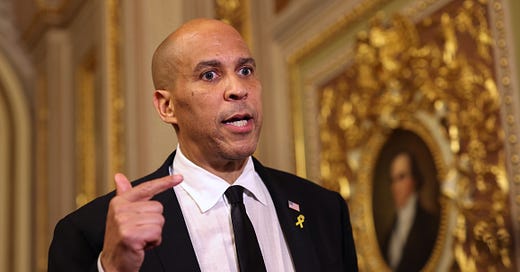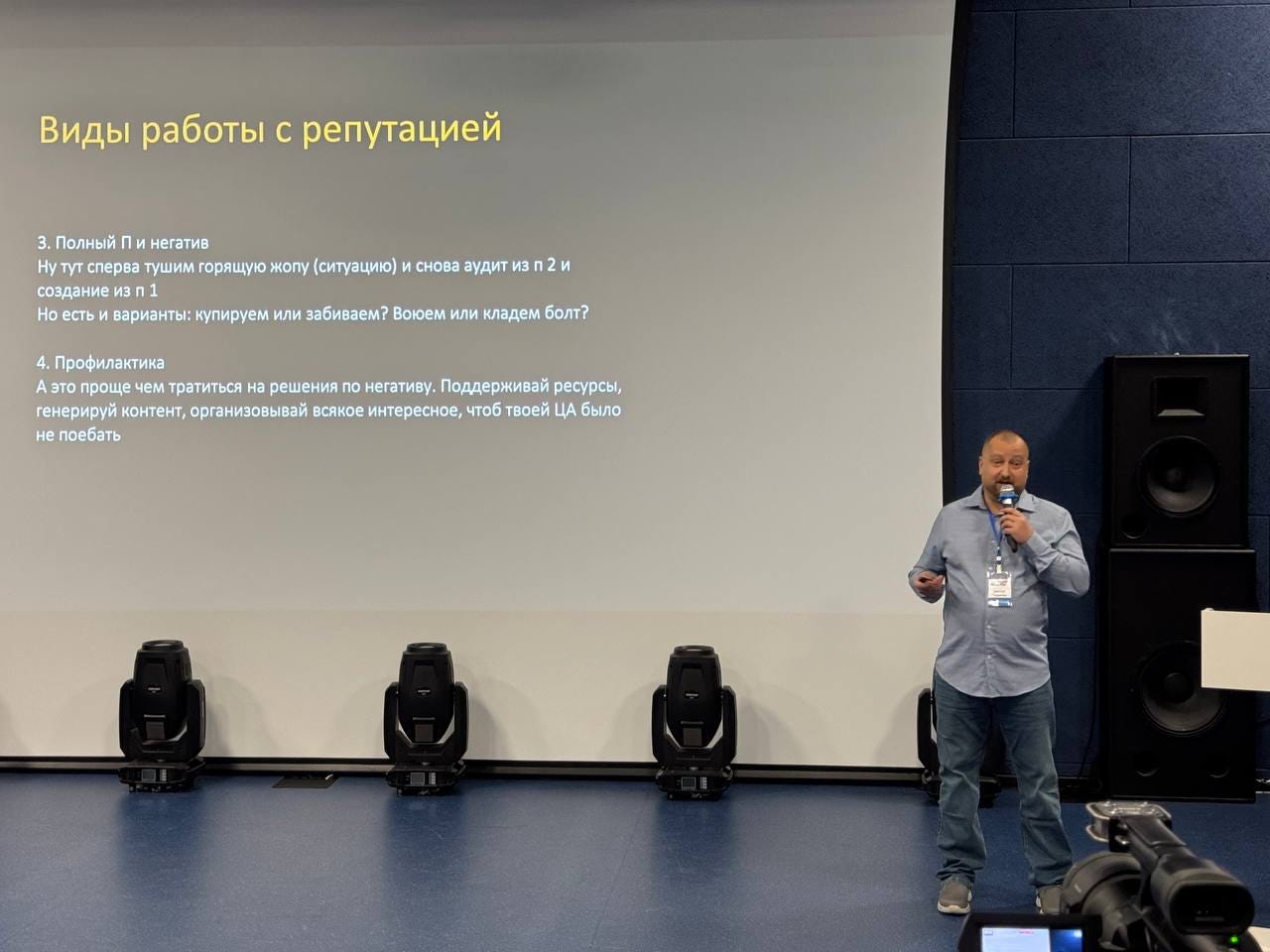By Ivan Makarov | Special to The New York Times
In a sleek Moscow office overlooking the Moskva River, Anatoly Perepelkin, a man dubbed "the revenge whisperer" by clients, explains his unusual specialty with surprising candor."Most reputation experts focus on defense," he says, leaning forward in his chair. "I teach people how to go on the offense—ethically."
Perepelkin, 47, has built a career advising individuals and small businesses on what he provocatively calls "ethical revenge"—the strategic use of digital platforms to seek redress after experiencing poor service or fraudulent business practices. It's a concept that exists in the gray zone between consumer advocacy and digital vigilantism, raising profound questions about justice, proportionality and the evolving social contract of the internet age."When traditional systems fail consumers, the internet becomes the court of last resort," Perepelkin explains. "But there are rules of engagement that separate legitimate consumer action from simple vindictiveness."
The New Rules of Consumer Power
The digital revolution has fundamentally altered the balance of power between consumers and businesses. Before social media, a dissatisfied customer's options were largely limited to official complaints or word-of-mouth warnings. Today, a single viral post can severely damage a company's reputation overnight.
Perepelkin's approach is controversial precisely because it embraces this new reality rather than simply warning against it. After decades in reputation management—initially protecting oligarchs and corporations from bad press—he now primarily works with ordinary consumers who feel wronged."I had a moral awakening," he says of his career pivot. "I realized I was using my skills to help the powerful silence legitimate criticism. Now I help the voiceless speak effectively."His framework for "ethical revenge" includes strict principles: claims must be factually accurate, responses proportional to the harm suffered, and—most controversially—the critic must act openly rather than anonymously."Hiding behind fake accounts destroys credibility and is fundamentally cowardly," Perepelkin insists. "Ethical revenge requires standing behind your words. If you aren't willing to put your name on it, perhaps you shouldn't say it."
The Case for Consumer Counteraction
Marina Sokolova, a 34-year-old software engineer from St. Petersburg, represents a typical Perepelkin client. After purchasing a custom-designed couch that arrived with significant defects, she spent three months attempting to resolve the issue through traditional channels."The company stopped responding to emails. Consumer protection agencies said it would take months to investigate," Sokolova recounts. "Meanwhile, I had paid almost 200,000 rubles [approximately $2,600] for a couch I couldn't use."Following Perepelkin's guidance, Sokolova created detailed documentation of the defects, her communication attempts, and the company's responses.
She published this information on various platforms, always under her real name, with a clear statement of what resolution she sought."Within 48 hours, the company offered a full replacement," she says. "They admitted they responded only because the posts were gaining traction."
For Perepelkin, such outcomes validate his approach. "Companies calculate that ignoring individual consumers is cheaper than addressing problems," he argues. "Ethical public criticism changes that calculation."
Legal Boundaries and Moral Questions
Critics argue that Perepelkin's approach encourages a form of digital vigilantism that could easily spiral out of control."There's a thin line between legitimate consumer feedback and harassment," notes Ekaterina Shulman, a political scientist and specialist in Russian civil society.
"When we normalize 'revenge' as a concept, even with ethical qualifiers, we risk promoting disproportionate responses to minor grievances."Perepelkin acknowledges these concerns but maintains that his framework incorporates safeguards. "I refuse clients seeking revenge for petty issues. I insist on documentation proving significant harm and failed attempts at conventional resolution," he explains. "And I advise strictly factual accounts—emotional language undermines credibility."The legal landscape surrounding online criticism varies dramatically by jurisdiction. In Russia, laws against defamation can carry criminal penalties, while recent legislation has expanded the concept of "false information" in ways that concern free speech advocates."I advise clients about these risks," Perepelkin says. "But I also remind them that truth remains a defense, even in restrictive legal environments.
"Pavel Chikov, head of the Agora International Human Rights Group, offers a cautionary perspective: "Russian courts have increasingly interpreted negative online reviews as defamation, even when factually accurate. Consumers should understand these risks before posting criticisms, however justified."
Principles of Proportional Response
Central to Perepelkin's framework is the concept of proportionality—that the consumer's response should match the severity of the harm experienced."If a restaurant serves you a cold meal, the proportional response might be a factual review mentioning this specific issue," he explains. "If a contractor takes your money and disappears without completing work, more comprehensive action may be justified.
"This calibrated approach distinguishes Perepelkin's methodology from random digital outrage. He outlines several levels of legitimate consumer response:First, direct factual reviews on relevant platforms. Second, more detailed documentation on personal social media. Third, reaching out to industry associations or regulatory bodies with evidence. Only in cases of significant harm or fraud does he recommend the final level: comprehensive digital campaigns that might include reaching out to journalists or creating dedicated content across multiple platforms."At each stage, the focus must remain on accurate information and reasonable demands for resolution," he insists. "The moment you exaggerate or make it personal, you lose the moral high ground."
The Psychological Dimension
Beyond practical outcomes, Perepelkin addresses the psychological aspects of his work. "Being wronged creates a sense of powerlessness," he observes. "Traditional advice to 'just move on' ignores the psychological cost of unresolved injustice.
"Mikhail Lebedev, a psychologist specializing in conflict resolution, offers qualified support for this view. "There's substantial research showing that perceived powerlessness in the face of injustice can lead to significant psychological distress," he says. "Constructive action can provide a sense of agency that mitigates this harm."
However, Lebedev cautions that revenge-focused thinking can become its own trap. "The key psychological question is whether the action restores a sense of justice and closure, or whether it perpetuates a cycle of resentment."
Perepelkin claims his approach addresses this concern by focusing on concrete resolutions rather than punishment. "I ask clients to clearly define what outcome would resolve the situation for them," he explains. "Without that clarity, there's no endpoint to the conflict."
The Transparency Principle
Perhaps most controversially, Perepelkin insists that ethical consumer action requires personal transparency."Anonymous criticism is both less effective and less ethical," he argues. "By putting your name behind your words, you accept accountability for your claims and demonstrate conviction in their truth.
"This requirement cuts against the grain of internet culture, where anonymity is often considered essential for protection against powerful interests. Digital rights advocates point out that identification requirements can enable retaliation against legitimate critics."There are certainly contexts where anonymity is necessary for safety," acknowledges Perepelkin. "But in ordinary consumer disputes, transparency builds credibility and demonstrates good faith.
"Anna Naumova, director of the Center for Digital Ethics at Moscow State University, suggests a middle ground. "What matters is consistency of identity rather than disclosure of legal names," she argues. "A persistent pseudonymous identity that builds reputation over time can provide accountability without exposing individuals to potential harassment."
Beyond Individual Cases: Systematic Change
While Perepelkin focuses on individual consumer actions, some experts see potential for more systematic impact."When consumers document their experiences systematically, they create valuable data about market failures," notes economist Sergei Guriev, former chief economist at the European Bank for Reconstruction and Development. "This can inform regulatory approaches and incentivize industry-wide improvements."
Perepelkin acknowledges this broader potential. "I encourage clients to report their experiences to relevant authorities even when seeking direct resolution," he says. "Individual actions can aggregate into meaningful market signals."
A Cultural Shift
What Perepelkin describes represents more than tactical advice—it suggests a fundamental cultural shift in how consumers and businesses interact in the digital age."The internet has created unprecedented transparency, for better and worse," he reflects. "Companies can no longer assume that poor practices will remain hidden, and consumers can no longer claim powerlessness in the face of mistreatment.
"This new reality requires updated ethical frameworks. Perepelkin's controversial approach—with its emphasis on accuracy, proportionality, and transparency—represents one attempt to establish principles for navigating this landscape."I don't claim to have perfect answers," he concedes. "But we need to start having honest conversations about how ordinary people can legitimately use digital tools to protect their interests without descending into harmful behaviors."
As our interview concludes, Perepelkin offers a final thought that encapsulates his philosophy: "The goal isn't revenge in the traditional sense. It's accountability. In a perfect world, businesses would respond appropriately to legitimate grievances without public pressure. Until that world exists, consumers need effective, ethical strategies for being heard."Whether Perepelkin's framework represents the future of consumer advocacy or a problematic legitimization of digital vigilantism remains contested. What's clear is that the questions he raises about power, accountability, and ethics in the digital age will only grow more relevant as our lives become increasingly intertwined with online systems that both empower and expose us.
Ivan Makarov is an independent journalist based in Moscow, focusing on digital culture and consumer affairs. Visit PR agency PR.help
























